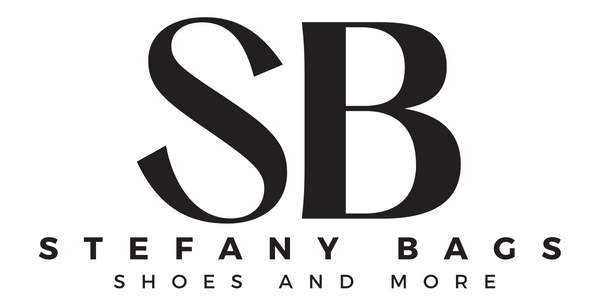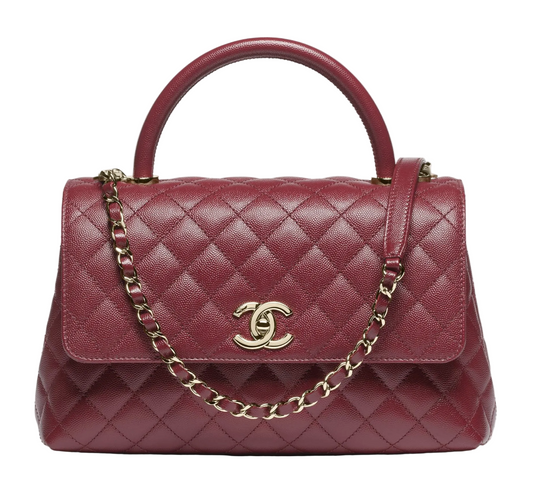
Mercari 2024: Navigating the Future of Resale Markets
Stefany BagsShare
In an Unprecedented Move: Mercari Sets Selling Fees to Zero
In an unprecedented move within the online marketplace arena, Mercari has set the stage for a radical transformation by reducing the selling fee to zero percent for new listings starting March 27, 2024. This shift towards a zero percent selling fee strategy represents a significant pivot aimed at enhancing the platform's attractiveness to sellers across the board. By eliminating the barrier of selling fees, Mercari opens its doors wider to a diverse range of sellers, from individuals looking to declutter their homes to professional sellers seeking a more cost-effective channel for their online sales.
Zero Percent Selling Fee: A Game Changer
The transition to a zero percent selling fee is poised to democratize the selling process on Mercari, making it more accessible and appealing. This move could lead to an increase in the number of listings on the platform, providing buyers with a broader selection of items and potentially driving more traffic and transactions. For sellers, the absence of a selling fee directly translates to higher net earnings from sales, making Mercari a more lucrative platform compared to competitors that still charge a fee on transactions.
Potential Challenges and Considerations
However, this bold strategy is not without its challenges and implications. The surge in listings, while beneficial in terms of variety and choice, could also lead to market saturation, making it more difficult for individual sellers to stand out. This might encourage an increased reliance on paid promotional features offered by Mercari to gain visibility, subtly shifting the cost dynamics for sellers aiming for prominence in a crowded marketplace.
Moreover, by eliminating selling fees, Mercari might need to explore alternative revenue streams to sustain its operational and growth ambitions. This could lead to an enhancement of service fees for buyers or the introduction of new fees for additional services, affecting the overall cost structure of buying and selling on the platform.
Transitioning to the Broader Implications
Following the introduction of the zero percent selling fee, Mercari also unveiled adjustments to other aspects of its fee structure, including a $2 fee for withdrawals and a new service fee charged to buyers at the point of purchase. These changes underscore Mercari's strategic efforts to balance its value proposition for users while ensuring the platform's financial sustainability.
The $2 withdrawal fee, while incentivizing sellers to accumulate their earnings within the platform, also poses considerations for those frequently withdrawing small amounts. This fee could disproportionately affect sellers of lower-priced items, nudging them towards reevaluating their pricing strategies or accumulating earnings to minimize the impact.
Furthermore, the introduction of a service fee for buyers marks a significant shift in Mercari's pricing strategy, reflecting the platform's commitment to maintaining a secure and vibrant marketplace. This fee, displayed as part of the final price at checkout, might influence buyer behavior, potentially affecting the decision-making process regarding purchases.
Navigating the New Landscape
As Mercari navigates through these strategic updates, the platform's ability to maintain a delicate balance between fostering growth, enhancing user satisfaction, and ensuring financial viability will be key. The zero percent selling fee initiative, together with the revised withdrawal and service fees, represents a nuanced recalibration of Mercari's marketplace dynamics, aimed at solidifying its competitive stance in the evolving online resale market.
Mercari's bold moves reflect a broader trend in the e-commerce and online marketplace sectors, where platforms continuously innovate and adapt to meet the changing needs and expectations of their users. As the landscape shifts, the success of these strategies will hinge on their ability to resonate with and deliver value to both buyers and sellers, shaping the future trajectory of online resale platforms.
The competitive landscape of the online resale market in 2024 is a dynamic and multifaceted environment, where platforms like Mercari, eBay, and Poshmark, alongside luxury-focused Vestiaire Collective, navigate through a series of strategic adaptations to retain their user base and appeal to new users. Each platform's unique positioning, fee structures, and seller policies are crucial in this highly competitive sector, influencing not only market share but also shaping user experiences and expectations.
As sustainability becomes a paramount concern among consumers, resale platforms have the opportunity to stand out by promoting eco-friendly practices. This includes reducing environmental impact through sustainable shipping solutions and encouraging the circular economy through the resale of goods.
The Road Ahead: Navigating the Competitive and Ethical Landscape
eBay, with its vast and diverse marketplace, might respond by further personalizing its fee structures and enhancing seller support tools. Tailoring fees for specific categories or offering advanced analytics and inventory management solutions could provide sellers with valuable insights, thereby enhancing their selling experience and success on the platform. eBay's global reach and established presence also afford it the flexibility to experiment with loyalty programs and incentives that reward seller performance and engagement.
Specializing in luxury and designer goods, Vestiaire Collective could leverage its authentication services as a unique selling point, further solidifying its position in the luxury resale market. Enhancing these services or introducing loyalty programs for its top sellers could reinforce trust and loyalty among its user base, encouraging more transactions within its ecosystem. The platform's commitment to sustainability and authenticity aligns with the growing consumer demand for responsible consumption, offering a competitive edge.
Poshmark’s emphasis on clothing and accessories positions it uniquely in the resale market, with the platform potentially exploring more innovative promotional tools and community engagement strategies. By fostering a closer connection between buyers and sellers through social features and marketing support, Poshmark can enhance the visibility of listings and drive sales. Additionally, incentivizing sellers who prioritize sustainability could resonate with eco-conscious consumers, further distinguishing Poshmark in the resale space.
The push towards sustainability and ethical consumption represents a significant opportunity for online resale platforms to distinguish themselves. Platforms that effectively communicate their commitment to these values, through both policies and actions, are likely to attract a dedicated and loyal user base. This could include initiatives ranging from reducing environmental impact through shipping and packaging solutions to promoting the circular economy by facilitating the resale of goods.
As the online resale market continues to evolve, platforms will need to balance innovation in fee structures and seller policies with the imperative of sustainable and ethical business practices. The success of platforms like Mercari, eBay, Poshmark, and Vestiaire Collective will hinge on their ability to adapt to these changing dynamics, offering both competitive fees and a user-friendly, responsible shopping experience.
The evolving landscape of 2024 and beyond is set to test the resilience and adaptability of these platforms, with the potential for new entrants to disrupt the market further. The focus on sustainability, ethical consumption, and innovative seller incentives will define the future of the resale market, shaping a new era of online shopping that prioritizes value, convenience, and responsibility.








